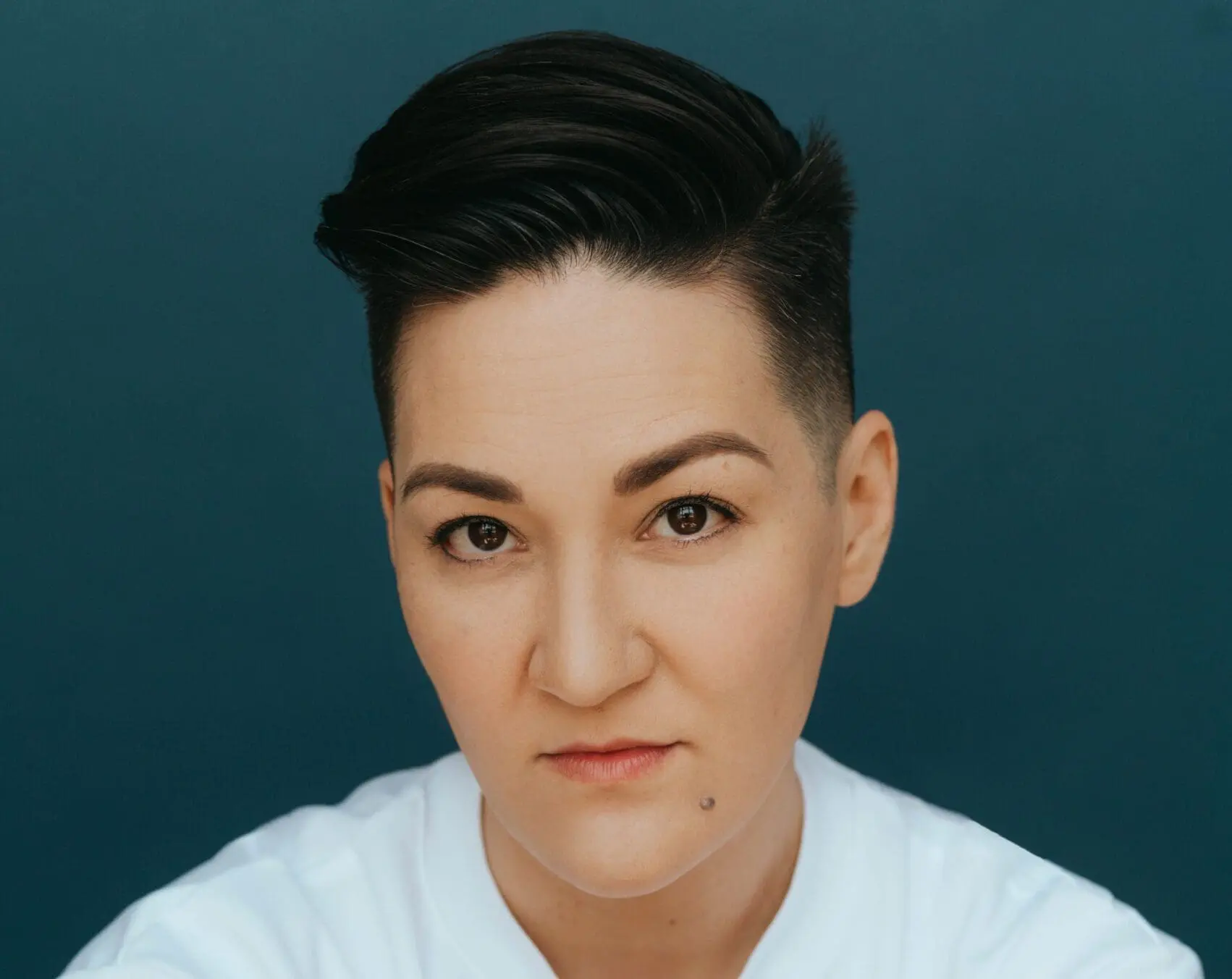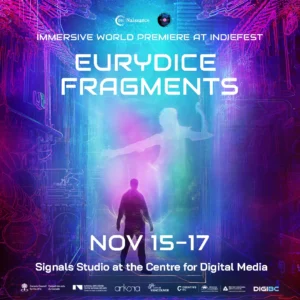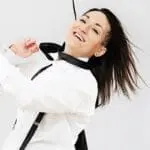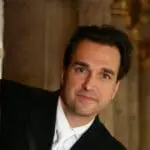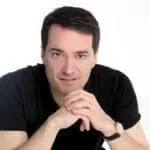The Artist of the Week is Soprano Teiya Kasahara 笠原貞野. They will be performing the role of O in re:Naissance Opera‘s Eurydice Fragments (which they co-created with Luke Hathaway) at IndieFest 2024 from November 15th to 17th (tickets and info here).
Teiya is a is a queer, trans non-binary opera singer and interdisciplinary theatre creator. His critically acclaimed operatic-play The Queen in Me has played at the Belfast International Festival, Meridian Arts Centre, the National Arts Centre and the Canadian Opera Company. With collaborative pianist, David Eliakis, they also created a queer-retelling of Schumann’s Dichterliebe and an autoethnographical performance and recording series entitled Project T. He is also a co-founder of Amplified Opera, an artistic associate with Confluence Concerts, and a long-time collaborator with re:Naissance Opera.
This week, Teiya chats with us about getting into character, classical music listening recommendations and their childhood dream job. Read on to find out more.
If you weren’t a singer, you’d be…?
If I wasn’t a singer I’d be a professional soccer player turned coach, with a degree in English or psychology, and a minor in kinesiology.
Who is a singer you admire that is currently working?
I recently had the pleasure to hear and meet mezzo-soprano Karen Cargill and to learn about how she has navigated this industry for over 25 years. She’s also a teacher and supports many young artists in empowering themselves to find their own unique voices (not just singing voices). She’s inspired me to continue to carve my own path in opera and also to share my knowledge and experience with the next generations of singers.
What’s your favourite orchestral instrument? Why?
It’s really hard to pick just one. That’s what makes an orchestra so wonderful, but I really do love the cello. When I can hear the whole cello section sing out like a voice and resonate over the upper voices or simply a solo cello line, it always makes me melt when listening to opera or orchestral music. And as a runner-up I’d have to say I have a soft spot for the French horn, especially in the sentimental nature of German romanticism.
What is your favourite thing about singing with an orchestra?
My favourite thing about singing with an orchestra is when I feel like my voice is weightless but still flying, and becomes more alive with the power of the orchestra’s polyphony. I can liken it to being on a familiar roller coaster when I’ve released my grip slightly to become one with the ride, part of the entire living organism, integral, fearless.
Which role do you wish you could sing, but is not in your voice type?
I’m really fascinated by the roles of the great castrati these days. There are some amazing melodies I’m finding in my research and they are so moving, and I imagine the freedom they probably had to ornament and emote the music inspires me. I imagine that it might feel similar to what I get to do in Eurydice Fragments, improvising various melodies with a malleable libretto that leads with dramatic and emotional delivery.
What’s your favourite mind-calming practice?
I like to make bracelets, or small fabric textile art with embroidery floss to chill out. I’ve gotten pretty good at it, especially during the pandemic, and it’s a great pastime to keep my hands busy, but my mind can be free and wander, or I can listen to music, a podcast or an audiobook while I do it.
What’s your favourite classical group/orchestra?
I recently heard the Thalea String Quartet at ChamberQUEER’s festival Constellation in New York. An incredible cellist and composer also played with them, Andrew Yee, and I was blown away by her artistry, all of their music-making, pushing the boundaries of what is expected of classical string players. I’m now a huge fan of all of them.
Where’s your favourite coffee shop?
I love Rooster Coffee on Broadview Avenue that overlooks Riverdale Park and also the Toronto city skyline. It’s my office outside of the home. Such a great view and vibe, and close to nature within the city.
What’s the best thing about being an opera artist?
I’ve developed a deep mind-body awareness. It started with the voice, obviously, but grew from there. I’ve been told I’m a bit too sensitive at times (a hypochondriac?), but I’ve learned that my sensitivity is simply giving me more mental and emotional information which has really helped me to take care of my health holistically.
What was your childhood dream job?
I wanted to be a marine biologist after I saw the movie Free Willy. I was obsessed with orcas for a time and had 13 stuffed animals of them at one point.
Do you sing in the shower?
I usually warm up my voice in the shower. Timesaver and it distracts me from listening to closely to how I “should” be sounding.
Do you approach singing and/or upcoming projects differently today than you did at the beginning of your career?
Yes and no. I think I don’t listen or watch recordings as religiously as I did in the past. Besides doing intensive score study, I’ve begun to rely more on my experience to bring my own unique artistry to a canonic role. And when it’s a new role, it’s so much more of a collaborative experience. The process can feel strange, uncharted, and it takes so much more time. There are so many questions and unknowns until I feel really acquainted with the character. What’s special, though, is that once these characters really take root in me, they’ll become kin.
Does your process change from role to role?
Absolutely. Character means so much and dictates how the music/role goes into my voice and body. This may mean that I might not do weightlifting during a contract, and choose to do more cardio/yoga/pilates instead to be able to be flexible and responsive. It may mean that I want to feel thicker/heavier in my torso because I’m wanting a certain vocal colour, so I may change my diet to accomplish that. It may mean learning how to move my body in the time period the role was set by taking extra dance or cultural classes. Every role I do (whether I’m performing or covering) definitely will create specific muscle memory in my body.
How long do you spend preparing to get into a character?
I like a good 2.5-3 hours before a performance to prepare. With enough time to arrive at the theatre: warm-up, stretch, eat, check props or tech, say hello to the crew, look at my score, do my makeup or have it be done by a professional (it’s such a calming feeling), stretch and then get psyched up. The visual transformation of getting into makeup/hair and costume really help me to become the character. I don’t like to feel rushed in these moments if I can help it.
What does success look like to you?
Success is starting to become much more of a feeling than a look. It is an energy in a rehearsal room, it is creating a show with a group of people that have put so much of their hearts and souls into the art, it is connecting with an audience during the performance, it is what is unsaid, unspoken, but felt, and remembered, and felt again. It is the impact AND the intent. It is what is left after people have taken action. It is the exhalation, the sweetest hangover post-adrenaline high. It is the cherished memories of dear colleagues and projects, of artistic risks and revolutions.
LEARN MORE ABOUT TEIYA KASAHARA
VISIT HIS WEBSITE
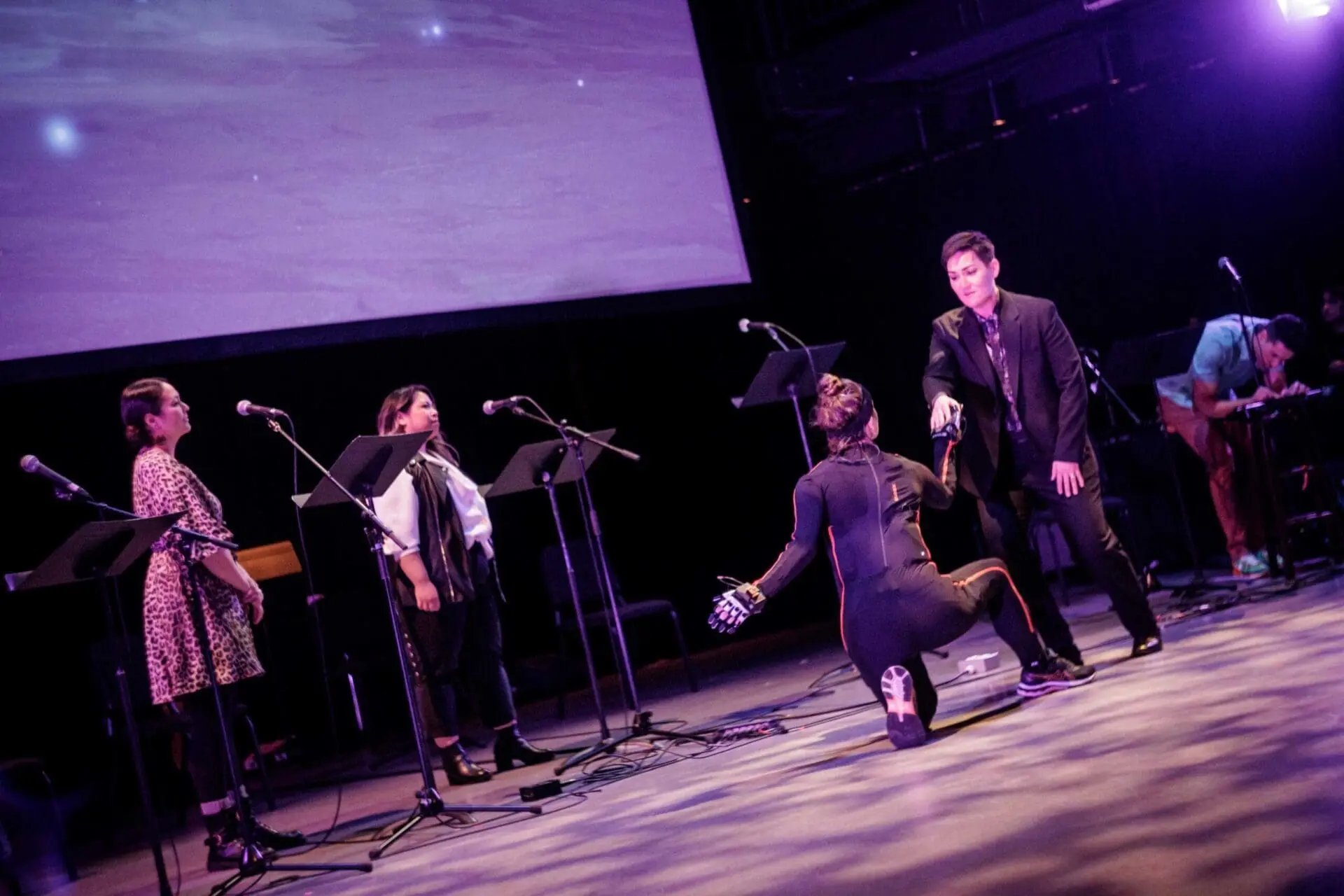
© Pedro Augusto Meza
Eurydice Fragments workshop
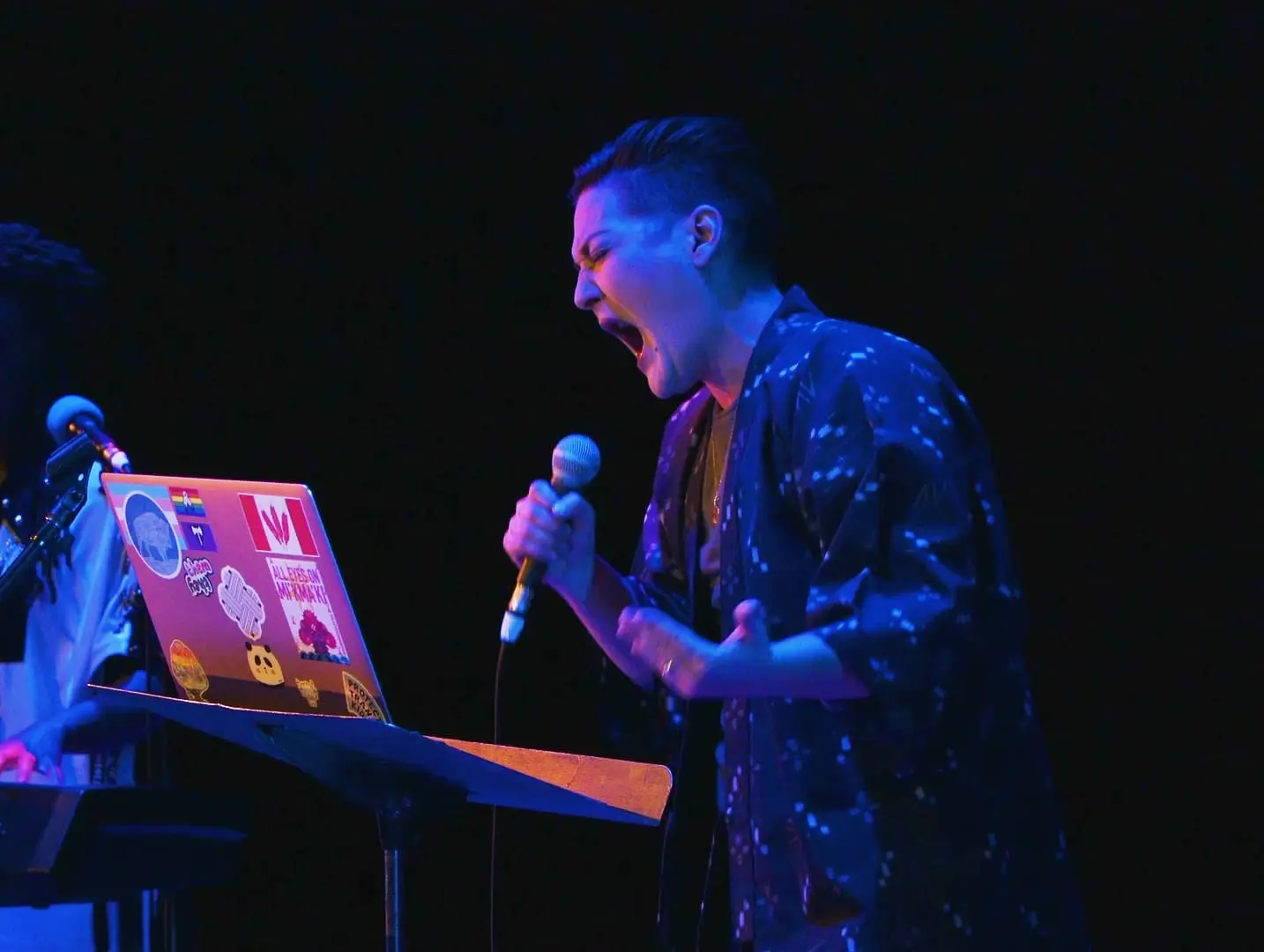
© Collide Entertainment
Live from the Underworld at IndieFest 2022
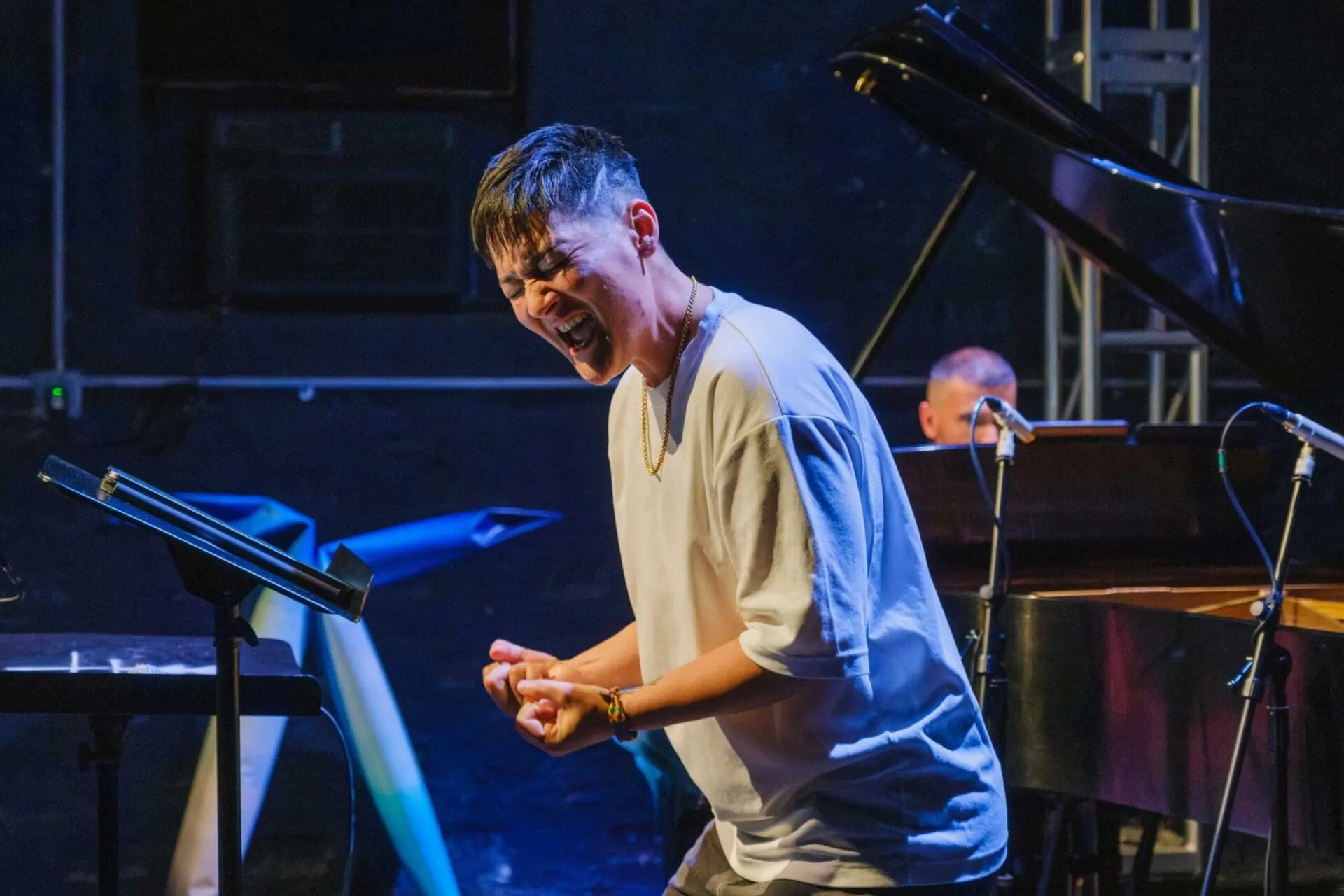
© Sean Solomon
Project T in New York, featuring David Eliakis on the piano
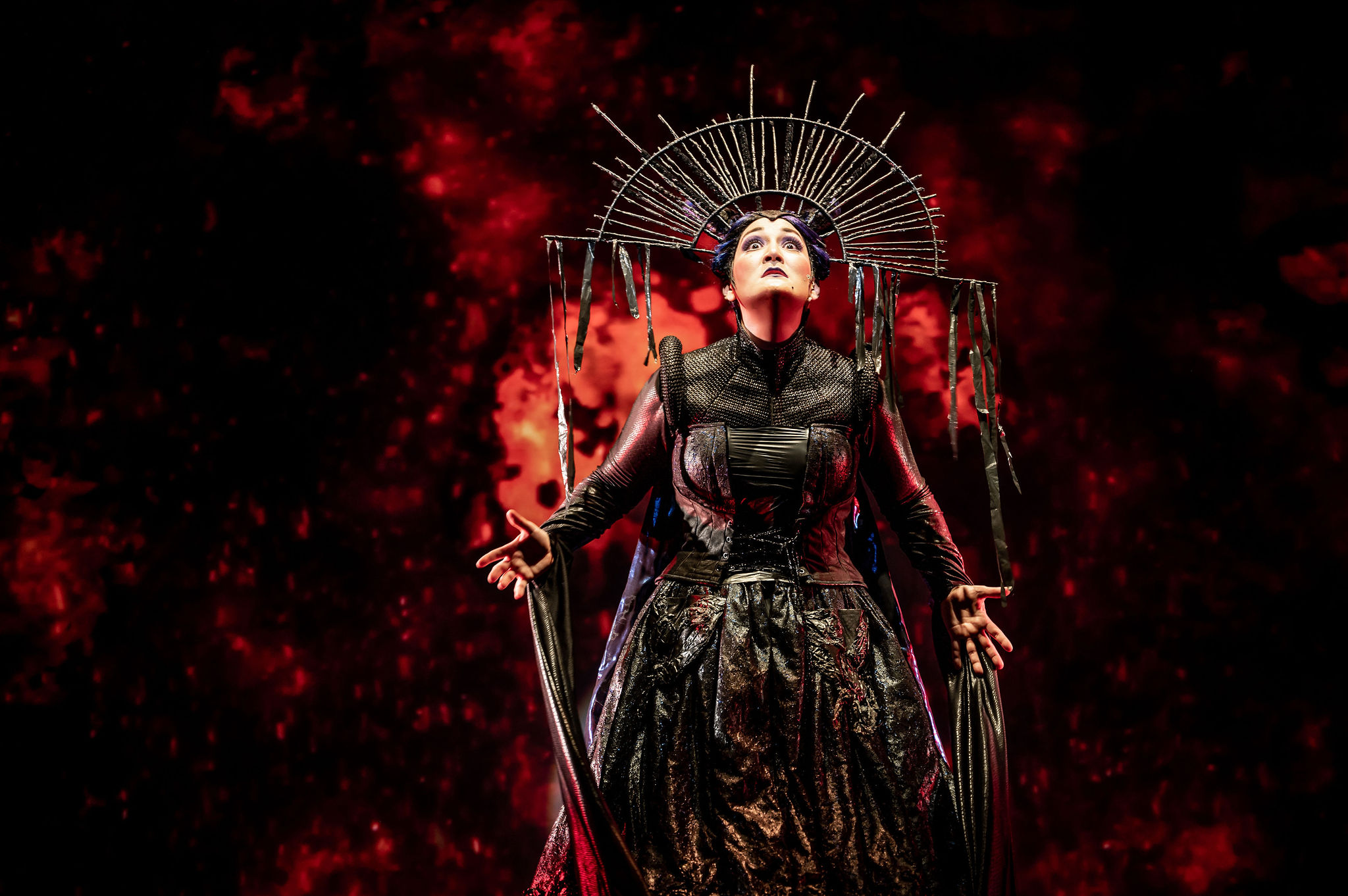
© Dahlia Katz
The Queen In Me
Eurydice Fragments
re:Naissance
November 15-17
O: Teiya Kasahara
HOPE: Brandon Thornil
PLUSEPHONE: Toddy
CHARON: Leo D.E Johnson
CHORUS: Sarah Vickruck
CHORUS: Alyssa Samson
CHORUS: Asitha Tennekoon
SHADOW: Kunji Ikeda
BEATBOXER: Scribbly Doodle
CO-MUSIC DIRECTOR & KEYBOARDIST: Jen Lewin
CO-MUSIC DIRECTOR & KEYBOARDIST: Perri Lo
CO-MUSIC DIRECTOR & KEYBOARDIST: Alex Chen
Opening IndieFest 2024, Eurydice Fragments is a contemporary version of the Greek Orphean myth that fuses powerful vocal performances, dance, extended reality, motion capture and interactive technologies. Through an immersive exploration of our digital and carbon existences, the performance dissolves the binaries we are bound to from birth until death, and strums the threads between heaven and hell, male and female, maker and muse, performer and audience.
Co-created by Luke Hathaway and Teiya Kasahara, the story follows O, a trans person whose sense of gender and identity is expansive — yet who has lived a fractured life. Haunted by past experiences and personhoods that have been suppressed, repressed, or condemned, O journeys to the Styx, a queer bar, where they find the opportunity to express themself through avatars in extended reality.
As O navigates the fluid landscapes of identity and technology, Eurydice Fragments challenges us to question: how do we navigate the vastness of our identities in spaces that resist our multiplicity?
Presented at Signals Studio at the Centre for Digital Media, this immersive experience promises to be an experience like no other.
Opera Canada depends on the generous contributions of its supporters to bring readers outstanding, in-depth coverage of opera in Canada and beyond.
Please consider subscribing or donating today.

